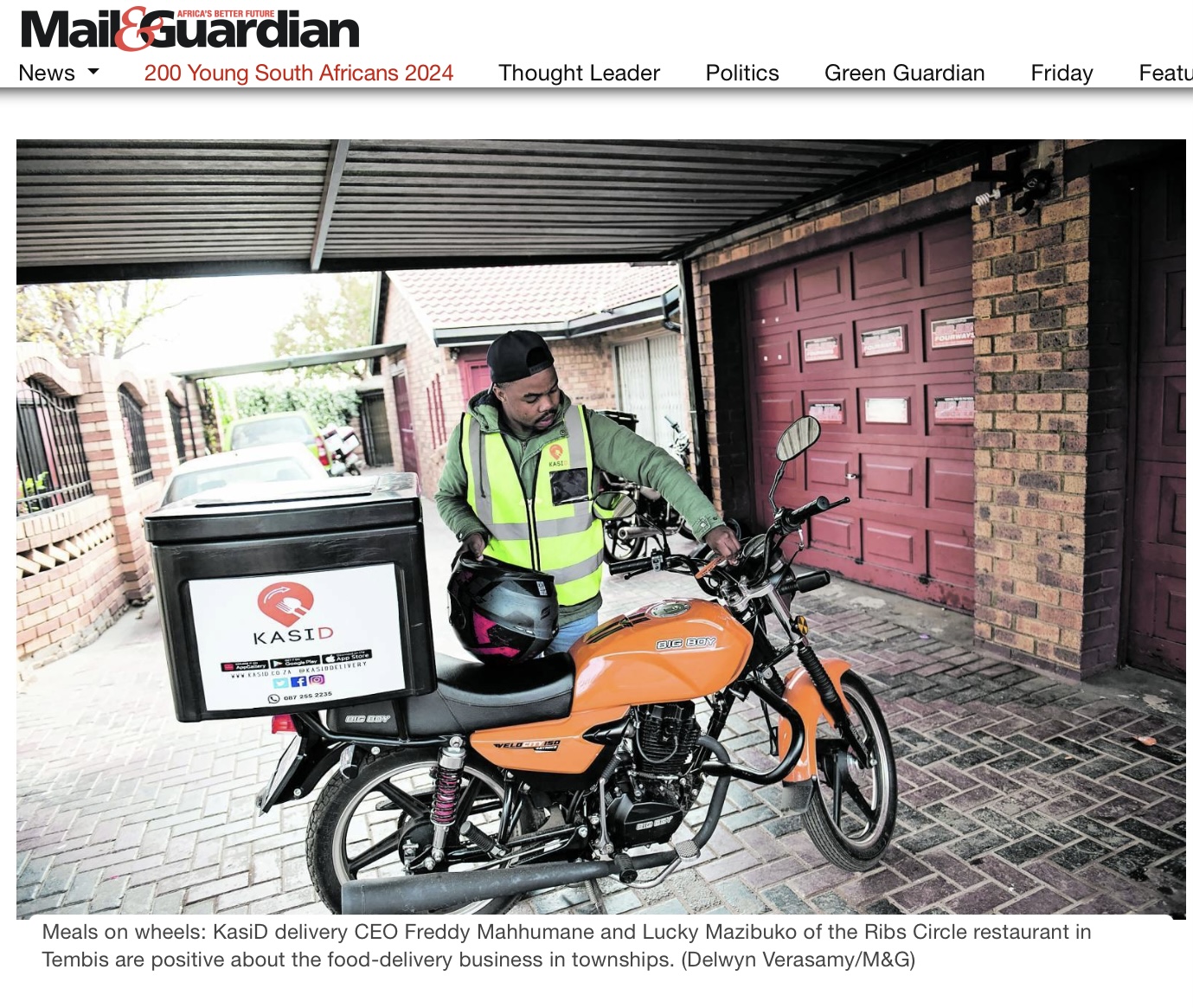
The appetite for food delivery services in townships is growing
https://mg.co.za/news/2024-07-06-the-appetite-for-food-delivery-services-in-townships-is-growing/
Lucky Mazibuko has been running Ribs Circle, a family-style fast-food restaurant in Tembisa, since 2016. It is one of the many semi-formal eateries in the township in the east of Johannesburg that has turned to e-commerce to boost business.
Before the arrival of the local e-commerce delivery app KasiD, Mazibuko’s customers would either call and then collect their food or sit in the restaurant to eat their meals. In the two years since he registered his business on the app in 2022, his revenue has increased by roughly R25 000.
Mazibuko said there is a need for e-commerce in the township because it boosts the local economy: “It helps. It brings in that extra income.” KasiD is an online food-delivery service that was born out of the need to service Tembisa residents.
Chief executive Freddy Mahhumane said he started it because he wanted to access local cuisine, even after moving away from the township. The township e-commerce economy is growing, according to the 2023 Township CX Report, published by digital marketing agency Rogerwilco, which found that the majority (60%) of respondents say they, or someone they know, have sold products and services online or begun working online. In addition, 20% of respondents said they considered Uber Eats for grocery delivery, while Checkers Sixty60 came in at 19.7%, followed by Mr D at 19.3%, while Pick n Pay’s ASAP service attracted 10%.
This week, Shoprite announced its first venture into e-commerce for its Cash & Carry stores, with a bulk-delivery service for spaza shops and small businesses. The online shopping system provides free delivery to customers within a 50km radius. The Rogerwilco report, however, points out that while the big e-commerce players have invested in becoming visible in townships, these areas have different needs to those of affluent suburbs. It says township delivery services such as KasiD, Order Kasi in Cape Town, Delivery Ka Speed in Hammanskraal, and a number of others, were developed to fulfil those needs.
The township economy has high volume, but low income, and that makes it difficult to operate in, according to development economist Eddie Rakabe. “The emergence of this e-commerce market is still very small, and the reason is because of the low income levels but … [also] I think, because the culture of the market is still not necessarily inclined to do things online,” he said.
By Aarti Bhana